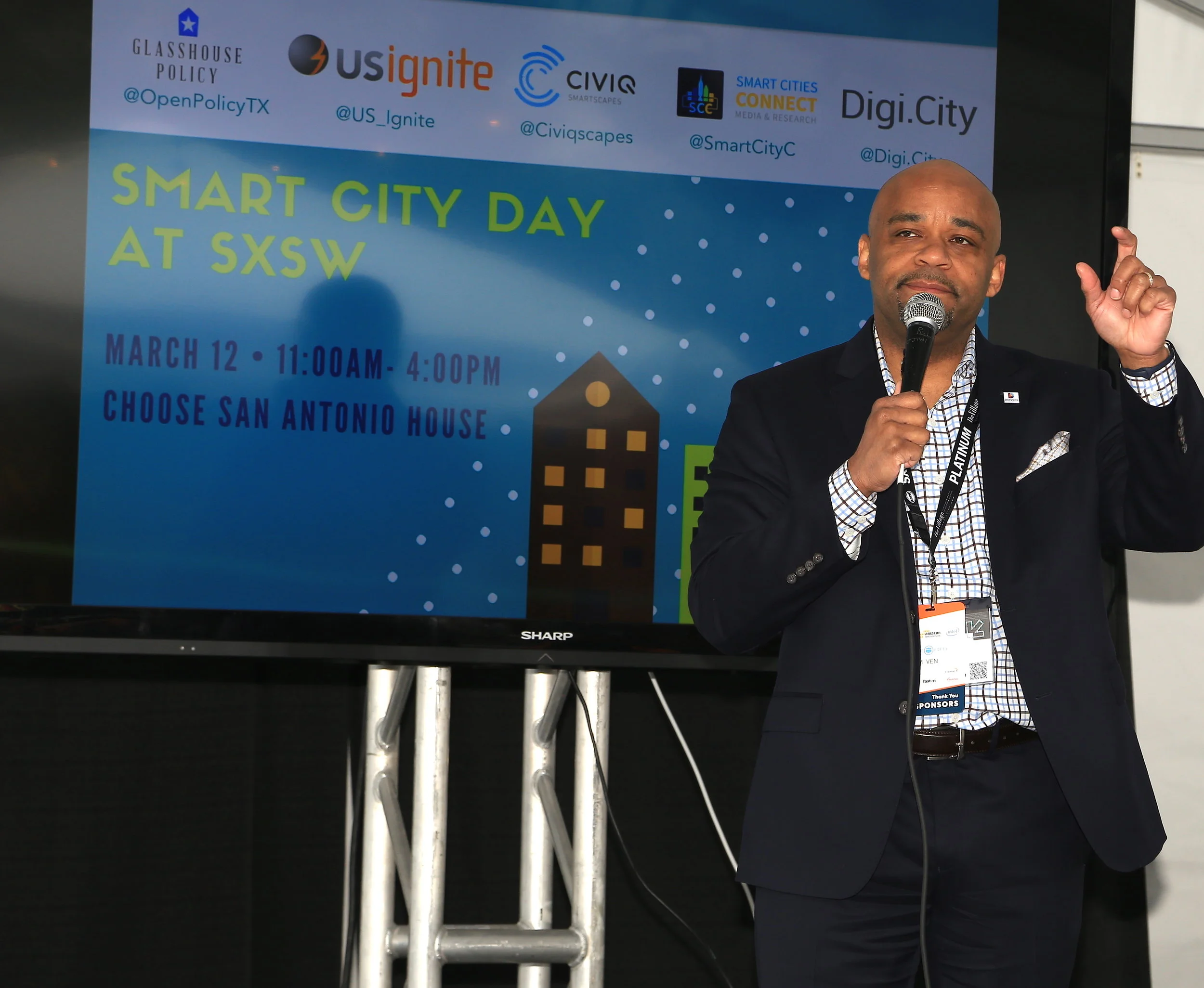State policy can have a profound impact on smart cities by influencing priorities, establishing advanced infrastructure, and emphasizing regional initiatives that cross municipal boundaries. In Indiana, the state’s Technology and Innovation Council has a pulse on innovation and believes that IoT could accelerate the state’s innovation economy over the coming years.
In four to five years, our world will be drastically different. Almost everything in your life and in your city will be automated thanks to The Internet of Things (IoT) and 5G technology. Steve Case, founder of AOL, calls this the Third Wave which is about "integrating the Internet into every aspect of our lives in seamless and often invisible ways."
Read MoreWhile the concept of making a smart city from the top down is intriguing and sexy as a marketing story, the reality is that it is hard, if not impossible, to align all the necessary stakeholders to transform a city in one fell swoop. Often cities focus on strategic pilot projects, allowing action to be taken quickly and success and failure evaluated rapidly to be able to build on what works in a cost and time-effective manner.
Read MoreIt's easy to look at something already formed and assume that it was easy to get there. But whether it's a product, a company or a supportive ecosystem, it all had to start somewhere.Cities like San Jose, Austin and San Francisco consistently grab top spots on the Milken Institute's List of Best Performing Cities. These are places that crank out companies by the thousands, creating jobs and building a self-sustaining platform for businesses large and small.
Read MoreOnly a few short years ago (2013), futurists predicted the importance of all things mobile. Today, it is hard to imagine how a business could sustain any level of growth without some level of a mobile strategy.
Read MoreThe terms innovation and city government don't often find their way into the same sentence. City hall has traditionally been perceived as a place for political log jams, procedures, policies and paperwork. But with the advent of smart cities, all of that is beginning to change.
Read MoreThe Internet of Things (IoT) holds tremendous promise for creating greater levels of efficiency, productivity and safety. Illustrating this concept through the context of a smart home is relatively simple. “Things” like refrigerators and thermostats are connected to the Internet and controlled by a mobile phone. Without any human interaction, your refrigerator can send an email or a text that certain supplies are low and even automatically integrate with a grocery delivery service. It’s all about leveraging technology to minimize inefficiency.
Read MoreAustin has recently taken a few big steps in its quest to become a smart city. In addition to a quick win as being one of five US metros awarded the Smart Cities Council Challenge Grant, the City of Austin is also beginning the process of its Smart Austin Strategic Roadmap, a Community Co-Creation Plan.
Read Morehttps://www.linkedin.com/pulse/global-internet-things-technology-market-research-report-butler
Read MoreSince the US Department of Transportation (DOT) issued the Smart City Challenge in 2016, US cities have been fast tracking their smart city efforts. Today, you see greater levels of activity on all fronts. There are more pilot projects activating, more collaborations forming, more organizations are hosting conferences, more people are writing articles. The volume of the conversation has increased and this is a positive step.
Read MoreWhat is a smart city? Like whispers in an art gallery alcove, we’ve heard the term wafting about. But not until our conversation with Chelsea Collier, did we feel like we could talk smart cities at a cocktail party without slurring words — not from inebriation but to keep others from guessing our spitballing on the topic might be more spit than ball. Collier has a background and love of futuristic tech, policy,
Read MoreWe used to live in silos where the role of certain sectors was clear. Companies provided products and services to generate a profit. Nonprofits and NGOs performed selfless act to save the world. Cities silently made the world run in ways that most of us never even noticed. With the advent of smart cities, things look quite different. Cities are now at the epicenter of the technology evolution with the integration of the Internet of Things (IoT), big data and connected technology.
Read More


















